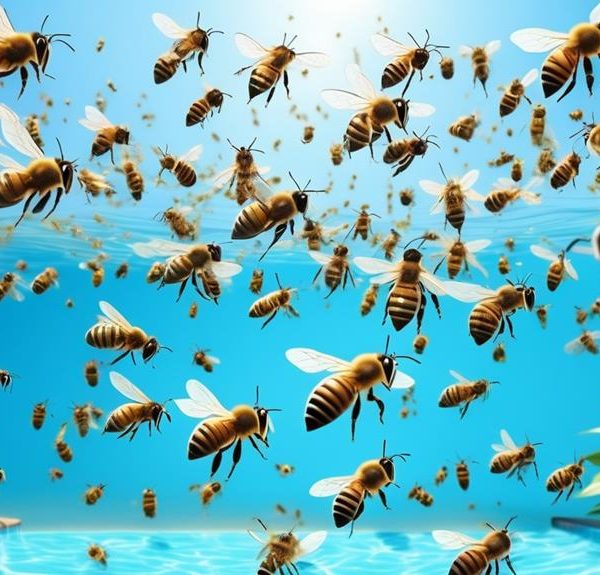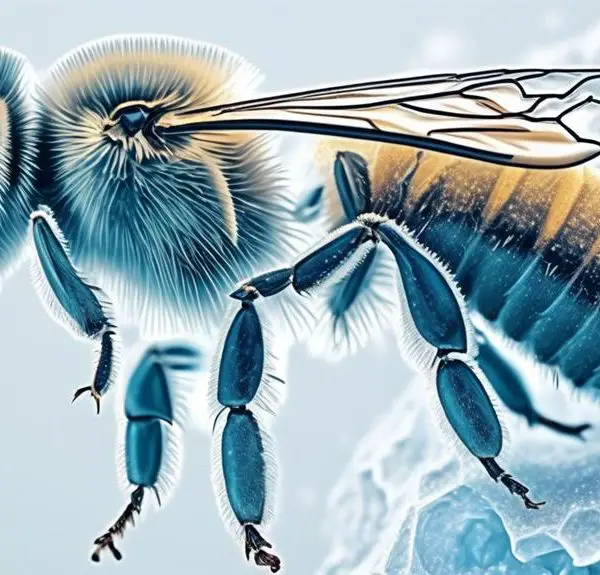Dive into the fascinating world of honey bees and discover if their diet reveals a hidden carnivorous side.
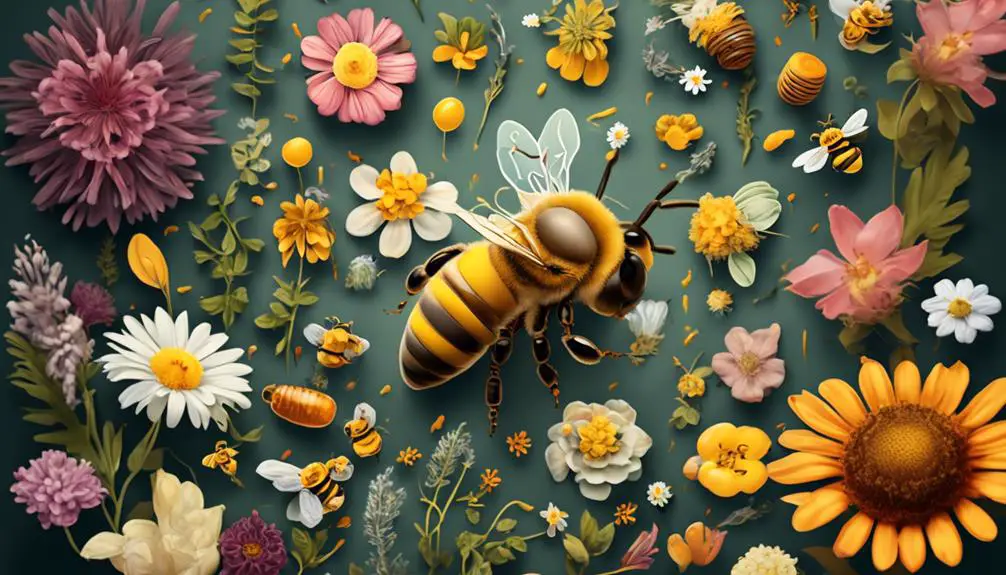
Are Honey Bees Carnivores
Navigating the world of honey bees is like venturing through a maze, each turn unveiling new, intriguing facts. You might know that these tiny creatures are renowned for their honey-making skills, but have you ever stopped to ponder their dietary habits?
The common perception is that bees are herbivores, feasting primarily on nectar and pollen. Yet, certain observations might raise an eyebrow, hinting at a possible carnivorous side to these buzzing insects. Could it be that these sweet honey producers have a hidden, meat-eating persona?
Let's embark on this journey of discovery together, as we unpack the mysteries of the honey bee diet.
Key Takeaways
- Honey bees primarily consume nectar from flowering plants for carbohydrates and pollen for proteins and fats.
- Bees may exhibit possible carnivorous behavior in specific circumstances, scavenging proteins from other insects or animal carcasses.
- Protein is crucial for bee growth, development, and reproduction, with pollen being the primary protein source.
- Balanced intake of nectar and protein sources is essential for bee health, as deficiencies can weaken immune response and impact colony health.
Understanding Honey Bee Diets
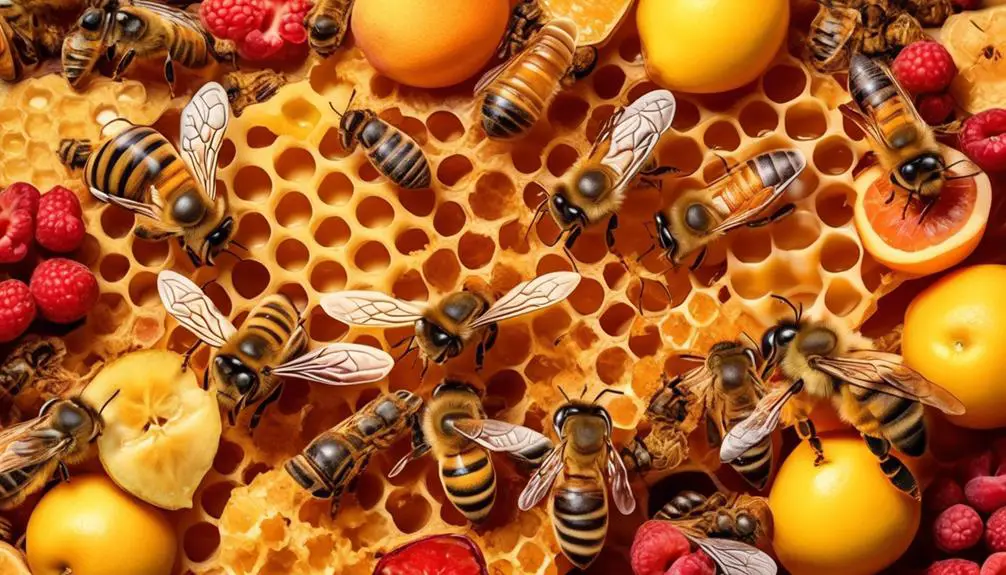
To comprehend a honey bee's dietary habits, it's crucial to understand that they primarily consume nectar and pollen from flowering plants, contrary to the carnivorous assumption. This plant-based diet classifies them as herbivores, not carnivores.
Nectar, a sweet liquid produced by many flowering plants, serves as a vital energy source for bees. It's rich in sugars, specifically fructose, glucose, and sucrose, providing them with the carbohydrates they need for their high-energy activities. When bees return to their hive, they regurgitate this nectar, which then undergoes a transformation process resulting in honey, the primary food source for the hive during times of scarcity.
On the other hand, pollen supplies bees with proteins and fats. Worker bees collect pollen and pack it into 'pollen baskets' on their hind legs, carrying it back to the hive. This pollen is then stored and used as a protein source, especially for developing larvae.
Understanding this, you can see that honey bees aren't carnivorous. Instead, they're dynamic foragers of plant-based nutrients, playing a critical role in pollination and maintaining biodiversity in our ecosystems. They're a remarkable example of an herbivorous insect, thriving on a diet of nectar and pollen.
The Honey Bee's Plant-Based Consumption
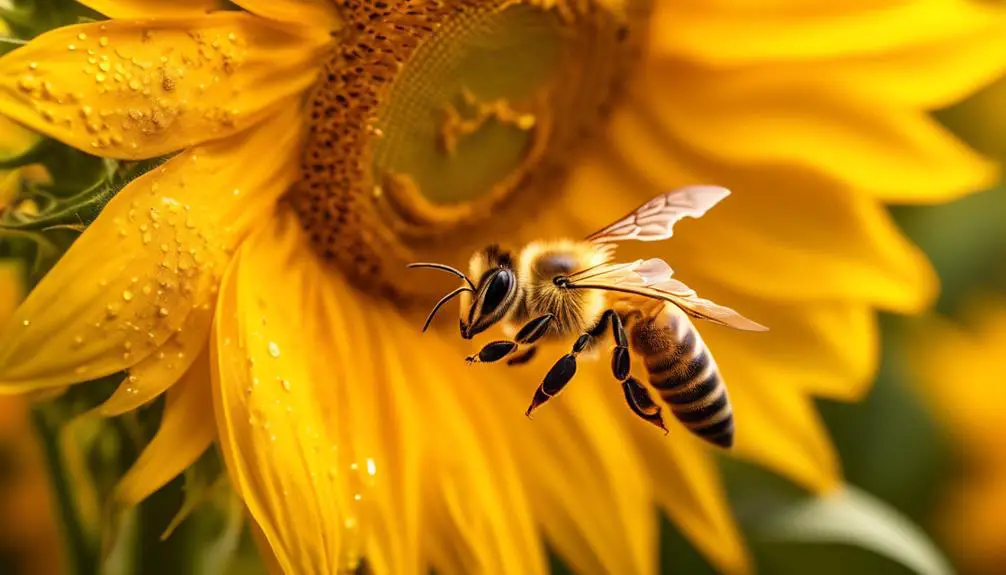
While you may often see honey bees buzzing around your garden, it's important to note that their plant-based consumption involves a meticulous process of gathering and processing nectar and pollen from various flowering plants. This process is essential to their survival and plays a significant role in their diet.
Honey bees collect nectar, a sweet liquid produced by plants, which they convert into honey. On the other hand, pollen, rich in proteins and other nutrients, is used primarily to feed the larvae in the hive. There's a complex process by which bees transform these raw materials into digestible food.
To give you a clearer picture of the bee's plant-based diet, let's look at this table:
Plant Material | Used For | Conversion Process |
|---|---|---|
Nectar | Energy source | Converted into honey |
Pollen | Protein source | Processed into bee bread |
Plant Resins | Defense | Transformed into propolis |
Water | Various uses | Directly utilized |
Plant Sugars | Energy source | Stored as honey |
This intricate interaction with flowering plants not only aids in the bee's survival but also ensures the pollination necessary for plant reproduction. Understanding this process helps underscore the importance of conserving our bee populations.
Exploring Possible Carnivorous Behavior
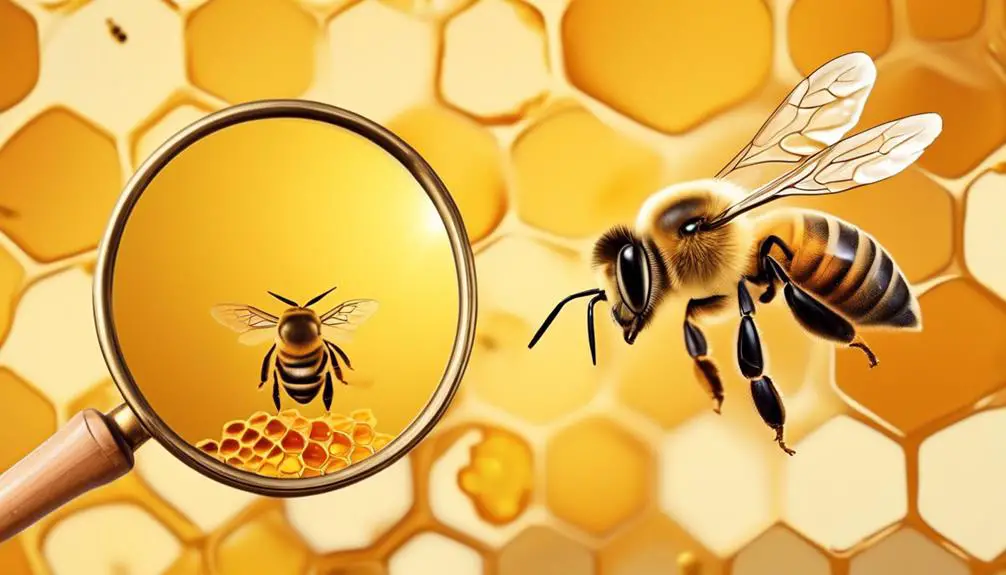
Despite their primary reliance on plant-based resources, you might wonder if honey bees ever exhibit carnivorous tendencies under specific circumstances. It's crucial to understand that honey bees, like any other living organisms, are driven by survival instincts. When facing certain conditions, they might deviate from their usual nectar and pollen diet.
Imagine you're witnessing a prolonged rainy season that affects the availability of floral resources. The honey bee colony's survival is at stake. Under such intense pressure, they might resort to scavenging proteins from other insects or animal carcasses. However, it's important to clarify that this isn't their preferred or common behavior.
Similarly, honey bees could display predatory behavior when defending their hive. Intruding insects might be killed and cannibalized, their proteins used to feed the hive. Yet again, this is more of a survival mechanism rather than a regular dietary habit.
The Role of Protein in Bee Nutrition
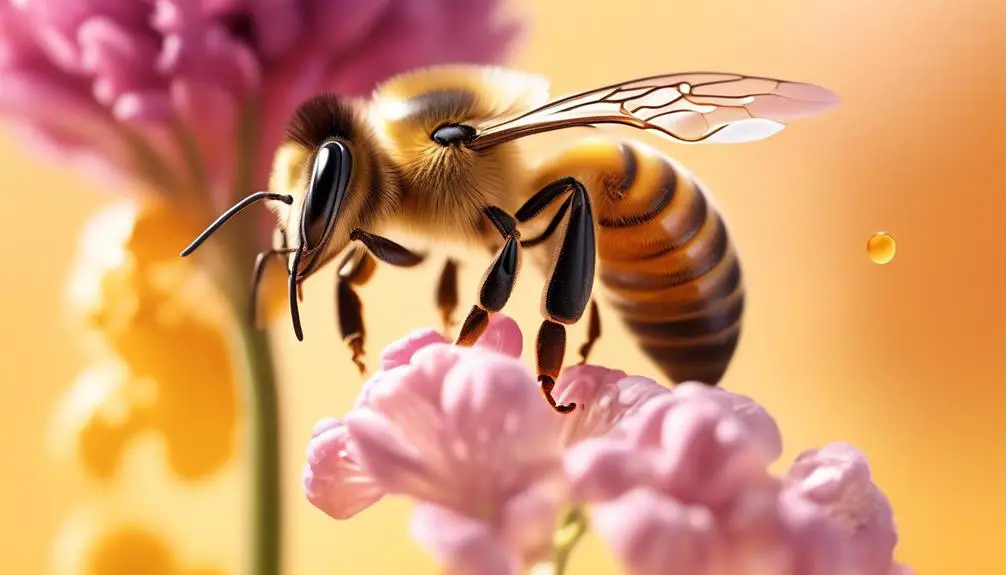
Understanding the occasional carnivorous behavior of honey bees brings us to the crucial role of protein in their nutrition. As a vital nutrient, protein directly contributes to their growth, development, and reproduction.
You might wonder, what's the source of this protein? It's primarily derived from pollen, a bee's main protein supply. However, when pollen is scarce, bees resort to other means. This takes us back to the carnivorous tendencies observed in bees. They can, in fact, consume insects and animal carcasses to fulfill their protein needs.
But it's not as simple as eating protein and thriving. Honey bees must process the protein into a usable form. They do this through their specialized digestive system. Proteins are broken down into amino acids, which are then used to build new proteins needed for their bodies' growth and maintenance.
Diet Impact on Honey Bee Health
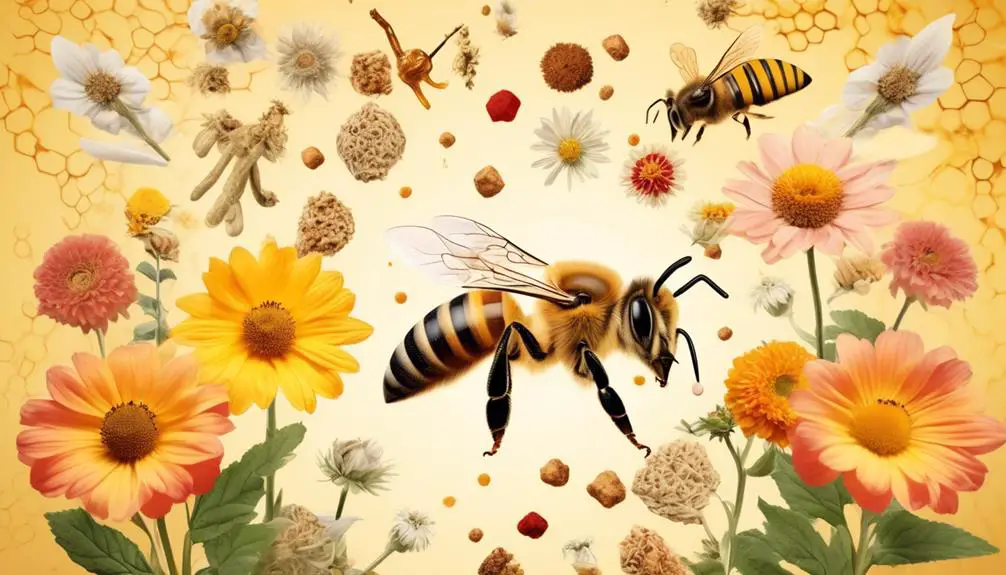
The food choices bees make, specifically the balance between their intake of nectar and protein sources, play a pivotal role in their overall health and colony success. As a beekeeper, you've probably observed that a lack of adequate nutrition can lead to a weakened immune response, making your bees more susceptible to diseases and parasites.
Scientific studies show that bees need a varied diet to maintain their health. Nectar, their primary source of carbohydrates, provides energy for flight and heat production. However, it's the protein from pollen that's critical for growth and development.
So, what happens when bees don't get enough protein? They're unable to produce royal jelly, a substance that's crucial for the development of larvae and the queen bee. Without it, your colony can't reproduce and will eventually die out.
On the other hand, a diet too rich in protein without enough nectar can lead to an energy deficit, slowing down their activity and reducing their ability to forage.
Conclusion
So, are honey bees carnivores? No, they're not. They primarily rely on a plant-based diet, nectar and pollen from flowers, making them essentially herbivores. However, they do need proteins, extracted mainly from pollen, to thrive. Any observed carnivorous behavior is likely opportunistic, not a dietary necessity.
It's clear that diet significantly influences their health and ultimately, the health of the entire hive. Understanding their dietary preferences is crucial for their conservation.

